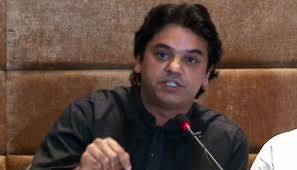Special Assistant to the Prime Minister (SAPM) on Youth Affairs, Usman Dar has said that empowering young women is key to Pakistan’s sustainable social and economic development.
He addressing at the virtual launch of Young Women in Pakistan: Status Report 2020 as the chief guest here on Monday.
The report has been launched by UN Women Pakistan and the National Commission on the Status of Women with support from the Royal Norwegian Embassy in Pakistan. Center of Gender and Policy Studies (CGaPS) provided technical support in conducting research and compiling the report.
The report seeks to address knowledge gaps by identifying needs, priorities and action for empowerment of young women, and support advocacy for increased investment in young women. It looks at the status of young women in Pakistan and shows how strategic investment will accelerate progress and actions to empower them.
“The report is a great initiative for all of us to understand the challenges young women face and seek advice for informed policies and actions to address those challenges. Our government is committed to empower youth, with special focus on young women, so that the targets of Sustainable Development Goals are achieved,” said Usman Dar while highlighting how government was determined to empower young women through a range of initiatives including Kamyab Jawan Programme, Youth Councils and Hunarmand Pakistan. “We look forward to working in close collaboration with UN Women to ensure young women have equal access to skill development opportunities and resources,” the SAPM said. Khawar Mumtaz, Senior Researcher and Activist and former Chair NCSW, said, “Female youth in Pakistan has not received much policy attention and as citizens of tomorrow merit due place in policy discourse — a nation cannot hope to achieve its objectives by leaving large segment of its population behind. This report seeks to see where the issues are, as we need to have an analysis of issues first to find befitting solutions and develop frameworks to ensure young women unleash their full potential.”
Secretary NCSW Humera Azam Khan, in her remarks, said, “It is indeed a quintessential research report relevant to the present-day context, analytical in profile and insightful in its recommendations.”
She thanked UN Women for supporting this very important initiative. Earlier, Aisha Mukhtar, Country Representative a.i., UN Women Pakistan, in her opening remarks, said that Pakistan is a country with a youthful demographic profile. As a signatory to several international gender equality commitments including CEDAW and SDG's, Pakistan has a huge opportunity as well as an obligation to advance gender equality and women’s empowerment agenda and for that targeted investment in young women is critical to fully capitalize on Pakistan’s youth bulge.
“In a world where youth leadership and activism are gaining importance, UN Women’s Generation Equality campaign provides a unique opportunity to youth activists and advocates in promoting a gender equal world,” Aisha Mukhtar said.
Country Representative a.i. UNDP Pakistan Aliona Niculita said, “The socioeconomic benefits of educated, healthy and empowered women are well documented but women in Pakistan are consistently at a disadvantage compared to men. The National Human Development Report of 2017 reveals that young women have very limited access to open spaces, engagement opportunities and have low labour force participation rate. Young women are in fact untapped potential of the country and we need to empower them to reduce deep-rooted inequalities which not only limit their participation in the society but also keep the country from prospering.”
Aida Orgocka, Technical Adviser UNFPA Pakistan, said, “Educating girls and getting women into the labour force will not translate into goals being met unless attention is paid to women’s reproductive health and rights and ending harmful practices, especially child marriage.” She added that UNFPA is looking forward to making use of this report for evidence-based programming.






